How a Wealthy Merchant and an Officer Organized a Uprising in At-Bashy — The Story of Shershenaly Abaev
As part of the "Тарых инсаны" ("Personality in History") section, we will tell you about Sharsheanalı Abaev, who actively participated in strengthening Soviet power in Kyrgyz lands since 1918. Sharsheanalı Abaev is a well-known statesman whose name is listed in encyclopedias, and his portrait can be seen in the historical museum of the Kochkor district.
Sharsheanalı was born in 1896 in the Ukok [Үкөк] area of Kochkor. From the age of 12, starting in 1908 and until 1917, he worked for wealthy landowners.
Over the years, Sharsheanalı held various positions in Soviet and economic structures in several regions of Kyrgyzstan.
Our correspondent from Turmush has gathered interesting historical facts about Sharsheanalı.
The national liberation uprising of 1916 [Urukun] was a key event in the history of the Kyrgyz people, led by such leaders as Borukchu – Tezekbay Tulku uulu, Japay – Koktash uulu, Nadyrbek – Kobogon Shygai uulu, and others. They organized a detachment and attacked the village of Stolypin (modern Kochkor).
However, the Imperial Russian army was significantly more powerful, and the rebels could not withstand it, being forced to retreat to China. At this time, 12-year-old Sharsheanalı, along with other refugees, moved to China, where he faced the harshest living conditions, witnessing hungry people selling their children for food.
After the overthrow of the tsar in 1917 and the establishment of the Provisional Government led by Alexander Fyodorovich Kerensky, the Kyrgyz began to return to their homeland. Sharsheanalı also returned home with his relatives.
On the way back, the head of the "uchuke" tribe, Kobogon Shygai uulu, passed away, and he was buried in the Jalak-Bel area.
During the rule of the Provisional Government, commissioners were appointed in Naryn, such as Kazy – the son of Choko manap, and translators Kylzhyr Esenaman uulu and Akmat Kudaybergen uulu in Jumgal. They controlled the distribution of food for those returning from China. Sharsheanalı and others who returned to Kochkor had no means of subsistence, and the lack of work forced them to labor for others.
Historical documents indicate that, unable to find work in Kochkor, Sharsheanalı, along with his brothers Beyshanalı and Kasımaly, moved to Tokmok, where they also faced a lack of work and hunger.
In 1918, leaders of the 1916 uprising, Japay Koktash uulu and Tezekbay Tulku uulu, were arrested in Tokmok and executed in the Shor-Dobo area. Sagin Niyazbek uulu, who returned from China, died of illness.
Hearing in the market that Soviet power had been established in Kyrgyzstan, Sharsheanalı learned that many young people were joining the Red Guard. His brothers, Beyshanalı and Kasımaly, enlisted in the ranks of the Red Army, and Sharsheanalı, seeing them off, returned to his native lands. Later, the brothers died in battles with the White Guards in the Abakum Kopal district.
In March 1918, Soviet power was established in the Naryn district. Despite this, the confrontation between the old and new governments continued. Representatives of the new government held a meeting in Kochkor, which Sharsheanalı attended. He was elected chairman of the Uchuke volost revolutionary committee, and Ybyray Konoев was elected chairman of the Kosh-Dobo volost revolutionary committee.
That same year, Sharsheanalı joined the Communist Party and actively contributed to strengthening Soviet power. His first task was to assist the starving population that had returned from China. He collected food from the wealthy and distributed it among the poor, as there were few farmers in the Kochkor valley.
At the Naryn district revolutionary committee conference in 1918, Sharsheanalı was elected a member of the revolutionary committee, and it was decided to send grain for the fleeing Kyrgyz. This task was assigned to the wealthy, who began hiring the poor to carry out this work, allowing them to earn a little for their sustenance.
In May 1919, Communist Party cells began to form in Kochkor. Esenalı Kyrbashев was elected secretary of the first branch in Joon-Aryk, and cells were also established in other areas under the leadership of Sharsheanalı.
That same year, a party conference took place in Naryn, where delegates divided into Bolsheviks and Mensheviks. More than 100 delegates represented the Bolsheviks, and a district party commission was formed, which included Sharsheanalı.
Among the new party members were also former wealthy individuals, such as Atakan Shygaev and others.
In 1920, military commissioner of the Jetisui region Bagauddin Shegabutdinov and commander of the international battalion Magazy Lebuzovich Masanchin arrived in Kochkor to warn Sharsheanalı of possible threats from kulaks and Russian-Kazakhs.
In November 1920, an uprising began in At-Bashy, led by Bondarev-Zemsky and Kiryanoв. They captured Naryn, arresting many party workers and executing some of them.
Under the leadership of Bondarev-Zemsky, a new authority was established, which appointed its supporters to positions. Sharsheanalı, as the head of the Uchuke volost, informed the population of the distrust towards the new government.
The rebels headed for Tokmok and Pishpek but were blocked by the troops of the Turkmen regiment in the Sary-Chat area of Kochkor. As a result of a fierce clash known as the "Möndürüp's Uruşu" [“Möndurov's Uprising”], the rebels were defeated.
Sharsheanalı Abaev, along with others, pursued the remaining rebels and captured one of their leaders — Kiryanoв, disguised in peasant clothing. He also provided the Turkmen troops with necessary supplies and food.
By the end of November 1920, Soviet power was established in the Naryn district, and the participants of the uprising were eliminated.
At the party conference in the Naryn district on January 11, 1921, Sharsheanalı was elected a delegate to the Turkestan regional party conference. In March of the same year, a troika was established to carry out land reform.
In Kochkor, the chairman of the volost peasant committee became Tynybai, who began seizing lands from wealthy peasants and distributing them to the poor. This led to conflicts between the wealthy and local activists.
Sharsheanalı Abaev held important positions in Kochkor from 1918 to 1924, including chairman of the Volrevkom and secretary of the party cell. From 1924 to 1930, he continued his career in administrative positions, such as chief of police and judge of the people's court, and then headed the land management in Naryn and Chui regions.
From 1931 to 1934, Sharsheanalı worked in the organizational department of the BAC (Bureau of Administrative Control) of the Kyrgyz ASSR, and then held various positions in Kyrgyzstan. In 1958, having become a pensioner, he settled in the village of Boroldoy, engaging in gardening.
Sharsheanalı Abaev passed away in 1972 in the village of Boroldoy in the Kemin district of the Chui region.
Read also:
Locusts, like a black cloud, covered the sky — how a peasant's daughter returned from China to Kochkor and raised 75-kilogram sheep
Turmush continues to introduce readers to the life stories of outstanding individuals from various...
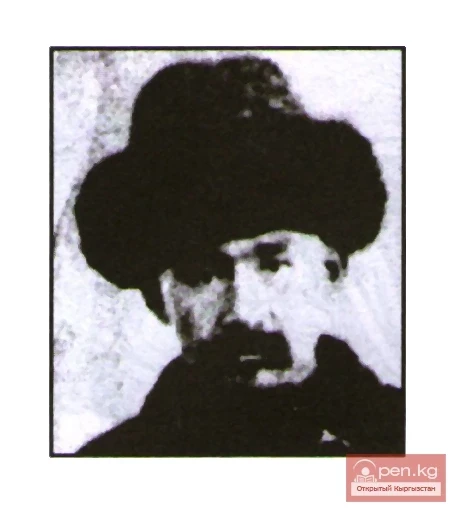
Belek Soltonoev, Son of Soltonkeldi (1878-1938)
Belek Soltonoev Soltonkeldi Uulu (1878-1938) - historian, educator, writer, rightly recognized as...
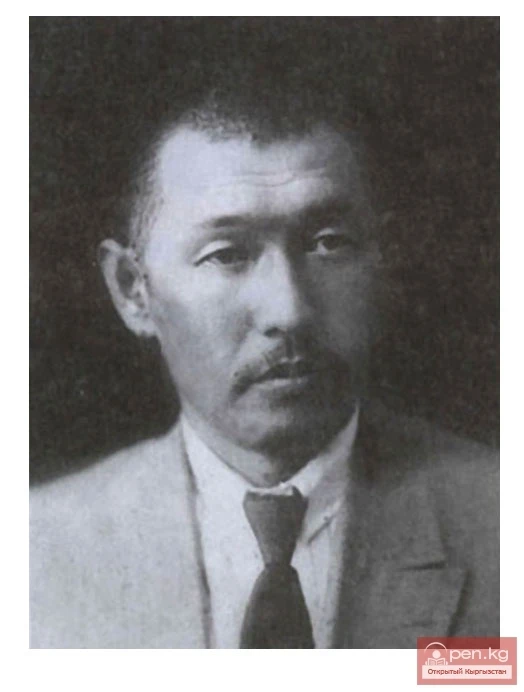
Abdykerim Sydyk uulu, Sydykov (1889 - 1938)
Abdykerim Sydyk uulu, Sydykov (1889 -1938) - one of the first Kyrgyz scholars who wrote works on...
"‘I waited for my brother all my life...’: The first chairman of the Kochkor village council, Ybrai Konoev, was sentenced to death and exonerated 20 years later"
Political repression during the Soviet period affected millions of people, yet the exact figures...
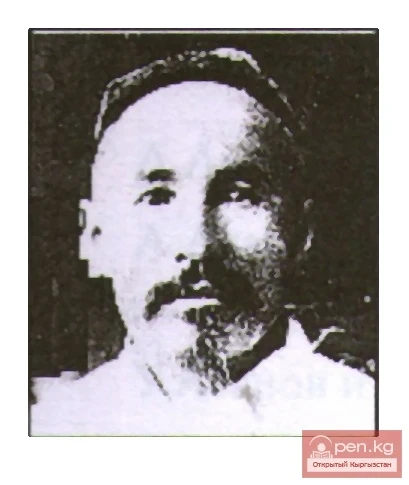
Osmonaly Sydyk uulu (1875-1940)
Osmonaly Sydyk uulu (1875-1940) - a scholar-genealogist, historian, and educator of the early 20th...
The Folk Legend of the Kyz-Mazar Area in Kochkor: The Beauty Who Froze to Death While Waiting for Her Beloved, and the Crying Camel Calf
In the pasture Ükök near the village of Kosh-Döbö in the Kochkor district of the Naryn region lies...
In At-Bashy, the 100th anniversary of two people's artists was celebrated
In At-Bashy, a solemn event was held to commemorate the centenary of the People's Artists of...
In the Kochkor Museum, archival photographs of prosperous families who were deported to Ukraine during the repressions are kept.
In the Kochkor Historical Museum, archival photographs of local residents who became victims of...
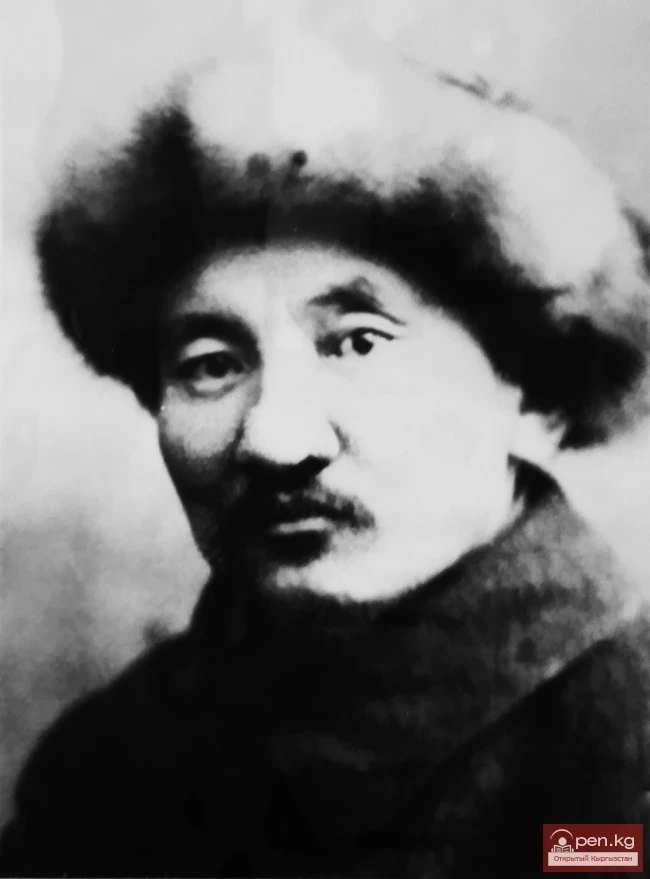
Arabai's son Esheanal (Arabajev Isheanal)
Arabay Uulu Eshenaly (Arabayev Ishenaly) (1882-1938) - a representative of science and culture at...
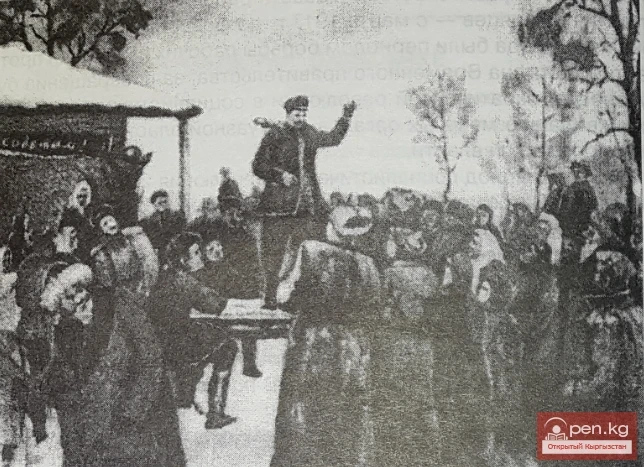
The Coup in Pishpek in March 1917
THE COUP IN PISHPEK The political coup that began in Pishpek was accompanied by a change of power,...
The Fate of the Chekist from the NKVD: M. Maksutov Was Left an Orphan, Learned Russian and Ukrainian, Captured Two Notorious Basmachis, and Personally Met with Stalin
In the framework of the "Taryh Insany" column, we will get acquainted with the life of...
The Family of the Hero of Kyrgyzstan Turdakun Usubaliev Against the Renaming of the Village of Kochkor
Relatives of the famous statesman Turdakun Usubaliev expressed their opinion on the proposal to...
The house of the initiator of the construction of the famous Dungan mosque has been preserved on Issyk-Kul — currently, 10 families live there.
In the Issyk-Kul region, in the city of Karakol, there is a house where Mahadji Ibrahim lived — the...
In the Kochkor District, the 150th anniversary of Osmonaly Sydyk uulu was celebrated with a scientific conference
A scientific conference dedicated to the 150th anniversary of Osmonaly Sydyk uulu was held in the...
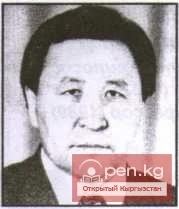
Atyshov Kobogon (1949)
Atyshov Kobogon (1949), Doctor of Economic Sciences (1992), Professor (1997) Kyrgyz. Born in the...
Omurbek Asan uulu won silver at the World Championship (U-23)
Athlete from Kyrgyzstan, Ömürbek Asan uulu, won second place at the World Youth Wrestling...
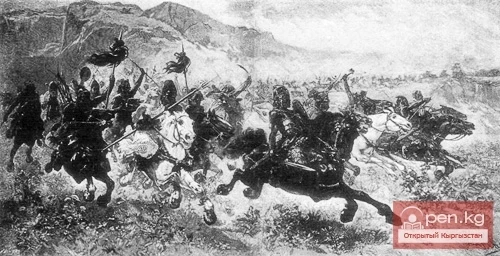
Military Forces of the Kyrgyz in the 18th - Early 20th Century
Since the Kyrgyz did not have their own state formation during the period in question, there is no...
Life in the Regions: Izat Syrgak Uulu from Talas Wins Cars and Apartments Thanks to His Horses
As reported by Turmush correspondent, 33-year-old horse breeder Syrgak uulu Izat from Talas wins 3...
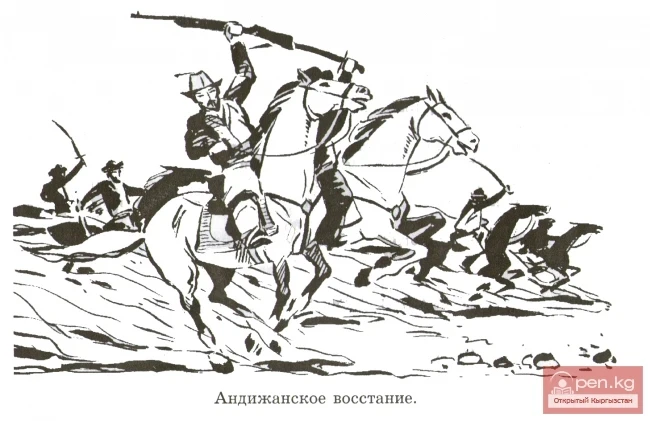
National Liberation Struggle of the Kyrgyz
Andijan Uprising. The main reasons for the uprising were unbearable living conditions and the...
Rakhman uulu Taiyrbek appointed head of the Samarkandek village council
Rahman uulu Taiyrbek has become the new head of the rural administration in the Samarkandek rural...
"History of the Manaschi": The Story of the Manaschi Aktan Tynybek Uulu
On February 18, a presentation of the book "Manaschylar" took place at the National...
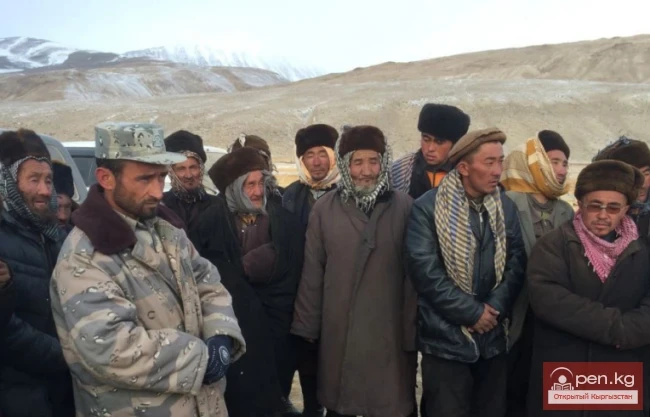
A new khan of the Kyrgyz has been elected in the Little Pamir
The new head of the Pamir Kyrgyz is 44 years old, named Azhybutu Abdylgani uulu. In Afghanistan,...
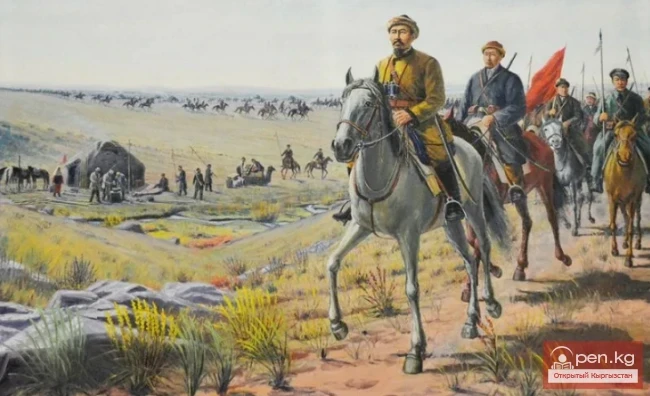
The 1916 Uprising - An Important Role in the Life of the Kyrgyz People
Speech by the residents of Uzgen On July 25, the residents of Uzgen spoke out. The protest lasted...
Descendant of Wealthy Merchants — How a 30-Year-Old Guy Was Trusted with Power in Kochkor
From 1940 to 1942, the First Secretary of the district party committee was Bayan Alamanov. With the...
A delegation from Kyzyl-Suu visited Lithuania to study waste processing practices
A delegation from the rural administration of Kyzyl-Suu, located in the Jeti-Oguz district of the...
Omurbek Asan uulu reached the finals of the World Championship (U-23)
Athlete from Kyrgyzstan, Ömürbek Asan uulu, has reached the final of the Youth World Championship...
Kurstaan Ashim uulu appointed head of the urban planning and municipal property department of the city administration of Osh
Kurstaan Ashim uulu has become the new head of the urban planning and municipal property department...
Residents of the village of Zhany-Zher doubled their profits from strawberry sales in a year — export directions named
Residents of the Batken region, living in the village of Zhany-Zher, have organized a cooperative...
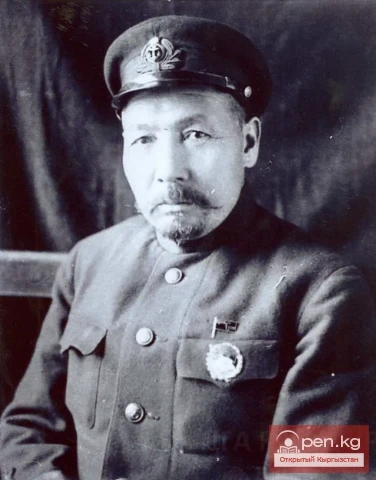
Abdykadir Orozbekov
Orozbekov Abdykadir - an outstanding state and public figure, the first head of state. The name of...
In Kochkor, the best gardener, farmer, and veterinarian were determined
In the Kochkor district, a solemn ceremony was held dedicated to the Day of Workers of the...
In Batken, there was an attempt to illegally export more than forty heads of cattle to a neighboring country.
Employees of the Batken Regional Department of Internal Affairs reported the detention of several...
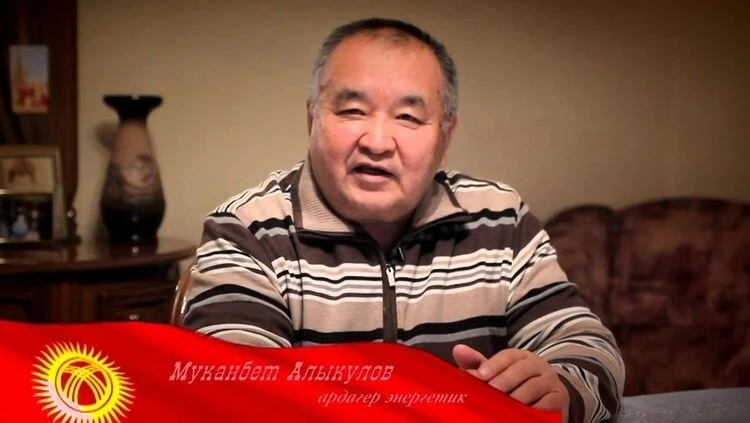
The former mayor of the city of Osh, Mukambek Alykulov, has passed away.
Photo from the internet Mukambek Alykulov, a renowned public and political figure, passed away at...
Life in the Regions: A Sheep Worth 150,000 Soms Died from a Cold — How a Former Migrant from Talas Invested All His Savings in Breeding Livestock
Mukhtaly Uulu Tugolbay, a farmer from the village of Tuyto [Түйтө] in the Bakai-Ata...
"The Best Family" was determined in the Alamidin District
In the Alamidin district, the final of the "Best Family" ("Мыкты үй-бүлө")...

Arstanbek BOYLOSH (BUYLASH) UULU
Arstanbek BOYLOSH (BUYLASH) UULU (1824—1878) — one of the prominent thinkers and poets of the...
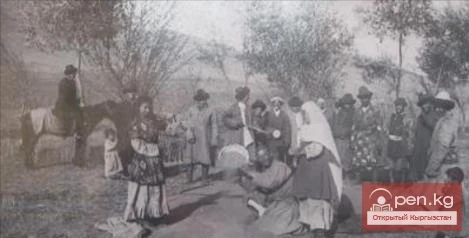
In Kyrgyzstan, a documentary film "Urkun" is being made about the 1916 uprising.
A documentary film titled 'Urkun' about the 1916 uprising is being filmed in Kyrgyzstan....
A mini-football tournament dedicated to the holiday of agricultural workers took place in Kochkor.
In the Kochkor district, a mini-football tournament was held dedicated to the holiday of...
"History of the Manaschi": The Story of the Manaschi Törö Mamyt Uulu
On February 18, the National Theater "Manas" presented the book "Manaschylar,"...
In Alai, the head of the village council criticized for poor performance in attracting investments
In the Alai district of the Osh region, a meeting was held to discuss the results of nine months of...

The Andijan Uprising of 1916 in Turkestan
Popular Movements. The Andijan Uprising is recorded in history as the largest popular movement of...
"Наши за рубежом": A Former Toastmaster from Kyrgyzstan Talks About Life in an American City Where There Is No Winter
Askarbay Kushtarbek uulu, originally from the Kara-Kulja district of the Osh region, has become the...
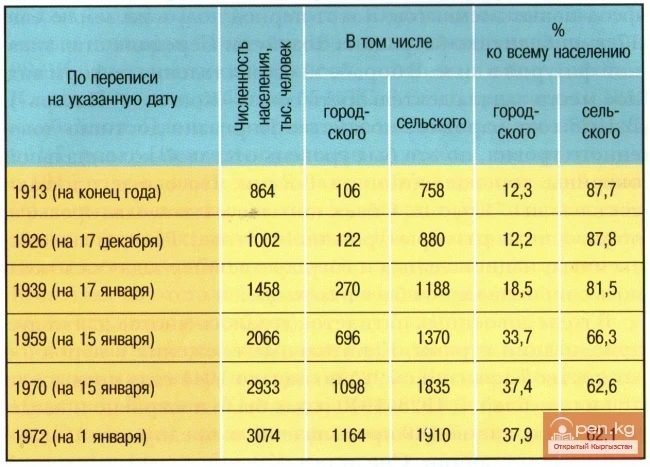
The Population of Kyrgyzstan in the Soviet Period (1917-1991)
Population of Kyrgyzstan from 1917 to 1970...
Folk Legends: In Chon-Alai, a man gifted each of his four wives a pasture, which he gave interesting names
In the Jekendi area, located in the Chon-Alai district of the Osh region, you can find four small...
Munarbek Seyitbek Uulu Reached the Final of the World Cup
The boxer Munarbek Seyitbek uulu reached the final of the World Boxing Cup, which is taking place...
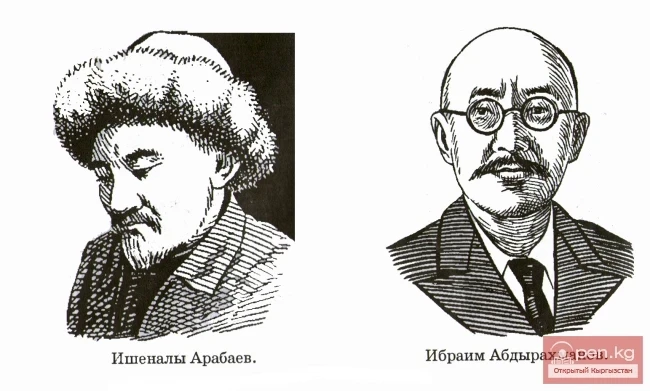
The First Kyrgyz Enlighteners
The First Enlighteners: Ishenaly Arabayev, Ibraim Abdyrahmanov After Kyrgyzstan joined Russia,...
In the At-Bashinsky District, the lives of elderly people are being improved with the participation of volunteers
In the At-Bashinsky district, an event dedicated to elderly people took place at the "Uluu...